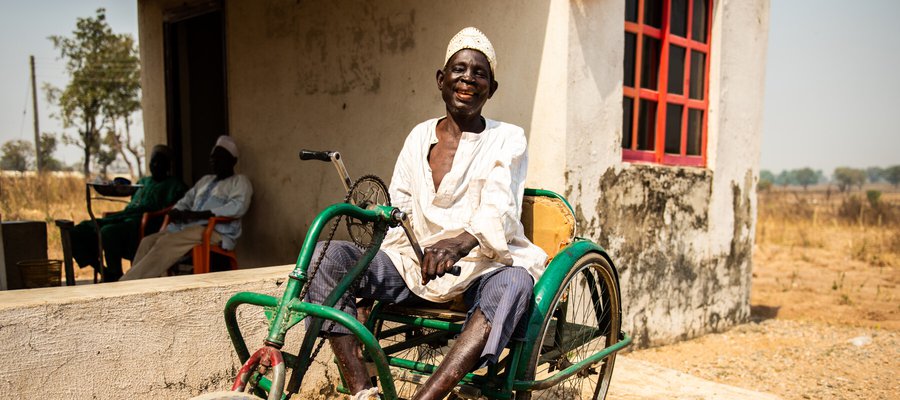Inclusion First

What?
Inclusion First works to build the resilience of people and their families with leprosy-related disabilities so that they can fully participate in all aspects of life.
Why?
People with disabilities in Nigeria face many challenges and problems, as they are often left out of decision-making, and excluded from actively participating in social, cultural, and economic life. In 2019, a new law was introduced [after nine years of lobbying], which prohibits discrimination against persons with disability; there is now a transition period to ensure that persons with disability have access to housing, education, and welfare and that public bodies and buildings are fully accessible.
As part of its commitment to zero discrimination against people affected by leprosy, TLM is working in partnership to help put this into practice, to ensure that the UN Sustainable Development Goals’ ‘Leave No One Behind’ agenda are delivered.
How?
Inclusion First works through local communities, focusing especially on people with disabilities who are also among the most disadvantaged. Using a proven ‘Rights-Based Approach’, it works with a wide range of partners to challenge the assumptions of organisations and decision-making bodies that ignore the needs of disabled people – across all sectors, from health, sport, and education, to employment and religious worship.
Although the Disability Act has been signed into law, there is still a very low level of awareness about what this means in practice throughout communities, so Inclusion First is working both at a community level and through the media, to change attitudes and thinking.
Using Community Based Rehabilitation (CBR), the project also works to drive positive, practical, and transformational change in the lives of children and young people with disabilities, their families, and communities.
Partners
Christian Health Association of Nigeria (CHAN), Centre for Citizens with Disabilities, Liliane Foundation.
Challenges
Even in a deeply religious country like Nigeria, worship is still off-limits for many disabled people – with buildings inaccessible, and worship materials not in formats for the visually impaired. Inclusion First is working with religious leaders and local communities to see more inclusion.
Nigeria is a very young country – with 45% of the population under the age of 15. The national policy stipulates that education from primary up to junior secondary school age is compulsory, but only a tiny proportion of special needs children are enrolled. Inclusion First is advocating at the local and national level for this to change.
Success
Inclusion First has just started a five year programme. We will post successes as the programme progresses.